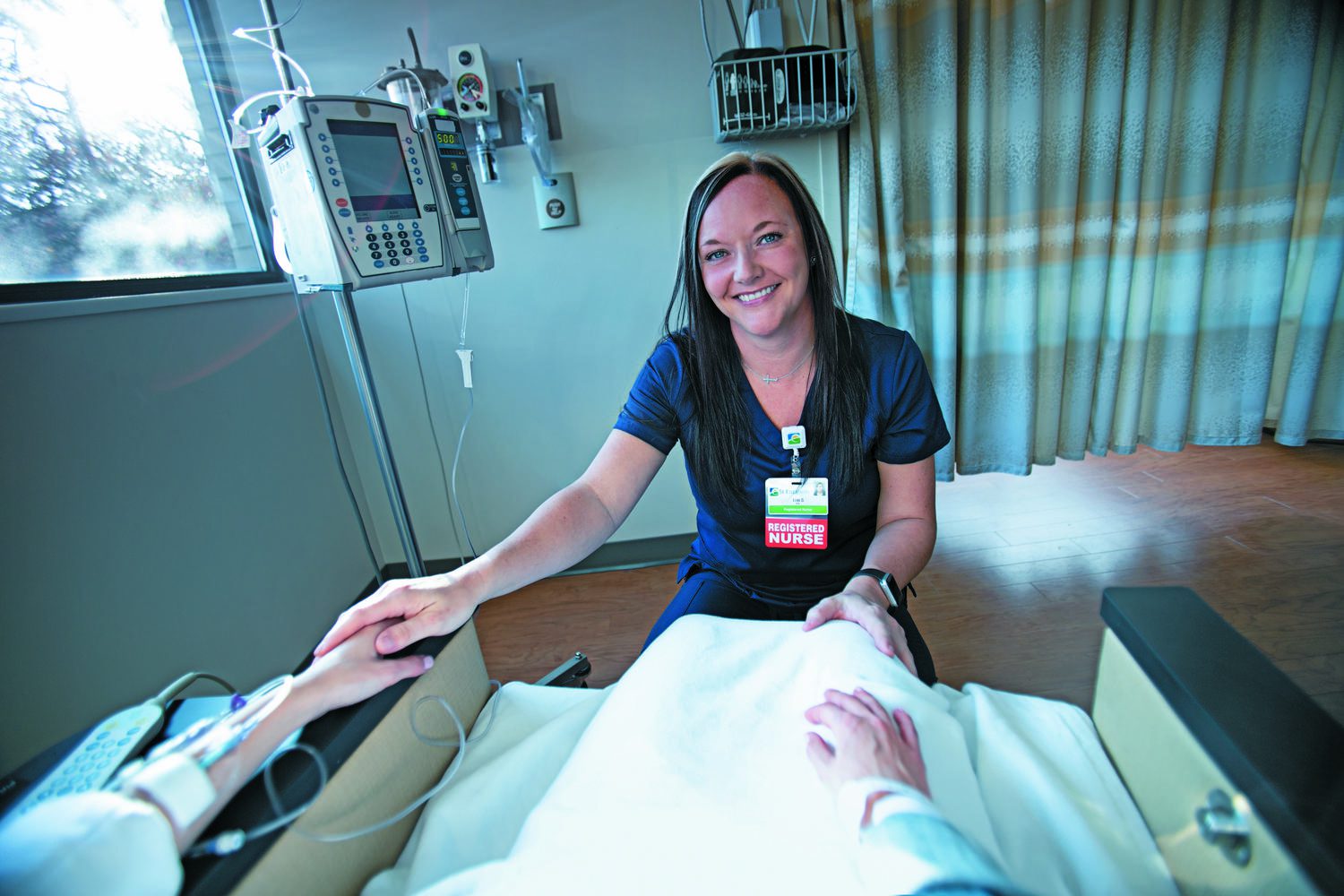Chemotherapy
What is chemotherapy?
Chemotherapy — sometimes called “chemo” — is a medicine used to kill cancer cells. Chemotherapy can be used alone or in combination with surgery and/or radiation.
Which chemotherapy is best for me?
The Cancer Care team at St. Elizabeth Healthcare will create a personalized treatment plan for you. When developing your care plan, your medical team will evaluate the type and stage of cancer and any additional health issues. They may also conduct molecular testing to tailor treatment to you.
How does chemotherapy work?
Chemotherapy attacks and kills rapidly dividing cells. Many normal cells in your body also divide quickly, and unfortunately, chemo cannot tell the difference between your normal cells and your cancer cells. Chemotherapy typically wipes out all of your rapidly dividing cells, both good and bad.
What is the goal of my treatment?
Depending on your type and stage of cancer, there are different goals of treatment:
Adjuvant treatment:
Medication used in addition to or after the main treatment (such as after surgery).
Curative treatment:
Medication treatment used to cure the disease and completely eliminate it from the body.
Neo-adjuvant treatment:
Medication that is given before the main treatment (such as before surgery). In this setting, the chemo is typically used to shrink tumor size before surgery.
Palliative treatment:
Chemotherapy or other medication that is given to relieve symptoms, shrink disease and reduce pain. It is not expected to provide a cure.
What to Expect During Chemotherapy
We emphasize patient understanding and individual privacy during chemotherapy treatments. You will be counseled before treatment to explain the nature of the medications used to fight your cancer and how you can help reduce the side effects. Your nurse will explain each medication to you before it is administered. Since some medications given along with chemotherapy may cause drowsiness, you are asked to bring along a family member or friend to escort you home after your first treatment. If you do not become drowsy with your first treatment, you may drive yourself for subsequent visits.

Make an appointment
For more information, please contact your oncologist or the Cancer Care Center at (859) 301-4000

